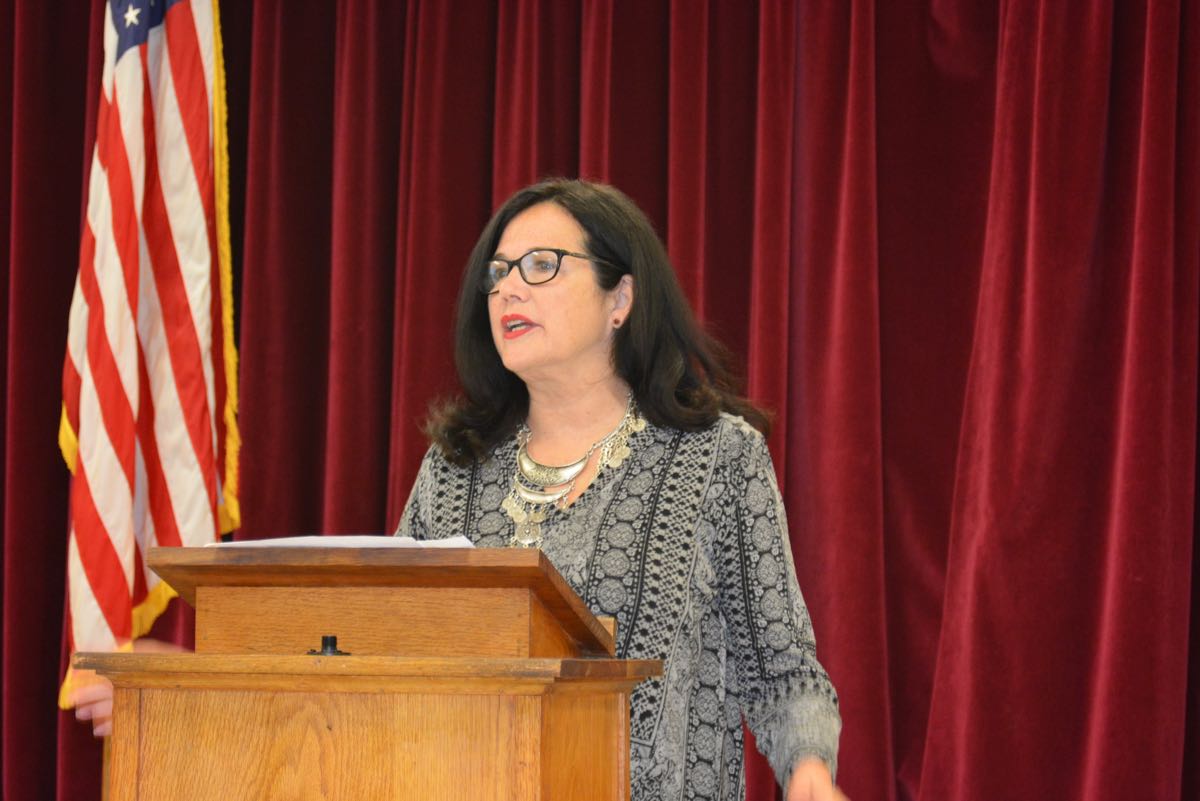An average of 200 refugees come to the Knoxville area each year, seeking a fresh start, safety, and a chance at a peaceful life. They often come with the clothes on their backs, and with just three months of financial assistance available, the clock is ticking from the moment they set foot in America.
Deni Kidd, a volunteer English teacher, and Bridge Refugee Services director Drocella Mugorewera, spoke to the Fountain City Business and Professional Association Aug. 9. They said refugees come to America because they face persecution and death in their home countries, but with assistance most are able to stand on their own and pay their own bills in four to six months.

Bridge Refugee Services executive director Drocella Mugorewera
“We have noticed that the climate in America has shifted, and we’re not as welcoming to refugees, and that’s sad,” said Kidd.
Kidd said refugees arriving in Knoxville have already gone through an extensive vetting process. They are glad to be here and want to assimilate into American culture. She shared a story of a young man who arrived in New York as a refugee and had nowhere to go. His belongings were stolen. He had no money. Eventually, a church gave him a job shoveling snow off sidewalks. Now, he is attending UT for an engineering degree.
“I asked him what made you keep going,” said Kidd. “He said, ‘I was the one chosen out of the camp, and I didn’t want to disappoint the ones who chose me to come to America.'”
Mugorewera is herself a refugee. She came to America eight years ago, persecuted in her home country because of her political ideals. She said Bridge helps refugees “through the generosity and kindness of people like you.”
Opportunities are available to sponsor apartments for refugees, either through monetary donations or providing furnishings. There is also need for volunteer English teachers, interpreters, job placement and sponsorship for aspiring entreprenuers.
“We want people to be welcome because refugees are hard workers,” she said. “Many people are coming to see us when they are looking for labor because refugees pass the drug tests easily, and they stay longer.
“Our goal is to make them self-sufficient sooner so they can give back to the community. We feel like this is preserving American values.”

